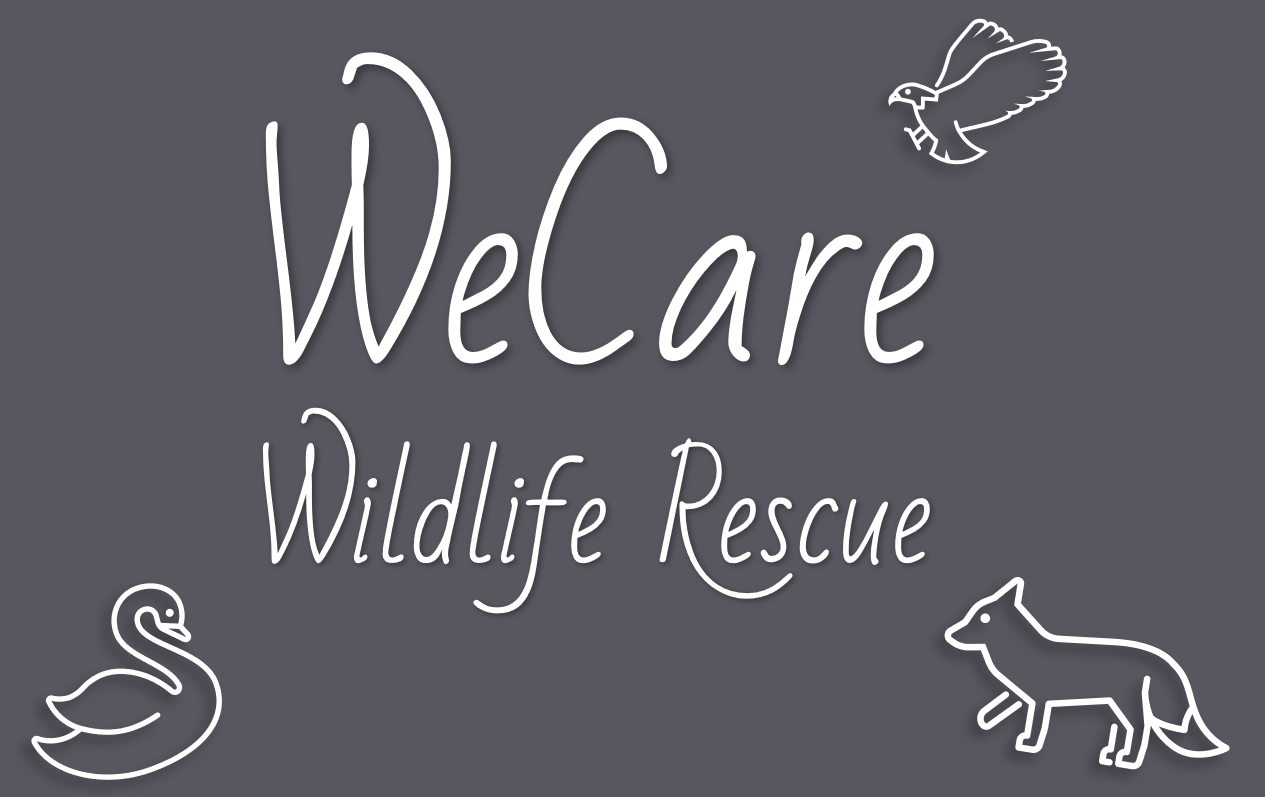Young Birds (No Feathers)
If you discover a baby bird or fledgling it is important to properly assess the situation first, and only touch the bird or intervene if really necessary. If you discover a young bird, that has not yet got feathers, the best thing to do is to replace it in the nest. Typically the young bird will not have been able to go far so look immediately up from the place it is found, to try and identify the nest site. Be aware not all birds nest in tree’s some birds such as Gulls are typically found nesting on structures and flat roofs. If the nest cannot be located, please contact us, this young bird will need extensive support. We can advise on the best course of action to take to keep it safe and the best place for it to go too.

Young Birds/Fledglings (Feathers)
If you discover a baby bird or fledgling it is important to properly assess the situation first, and only touch the bird or intervene if really necessary. If you discover a young bird, which does has it feathers, it is likely a fledgling. Most birds are not able to fly immediately when they leave the nest, so it is common to see young, but feathered birds on the ground. Keep a close eye on the bird, keep pets such as dogs and cats away and spend some time seeing if the parents are around and caring for it. They often are in the near vicinity, keeping watch and helping the young bird become independent. If the bird appears to be in danger then with minimal contact, move it so a safer place as near to the location it was found as possible. If after an extended period of time the parents do not return, and the bird appears to to be in immediate danger or serious distress, please contact us so we can advise on the best course of action to take to keep it safe and the best place for it to go too.

Pigeons
A lot of different infections so please handle with gloves. If a visible injury please take to a vet . If they say can be rehabilitated you can then arrange for us to help.
With young squabs we need asap and they need warmth while being transported. They are fed differently to other birds and won’t ask for food in the same way please get to us ASAP.
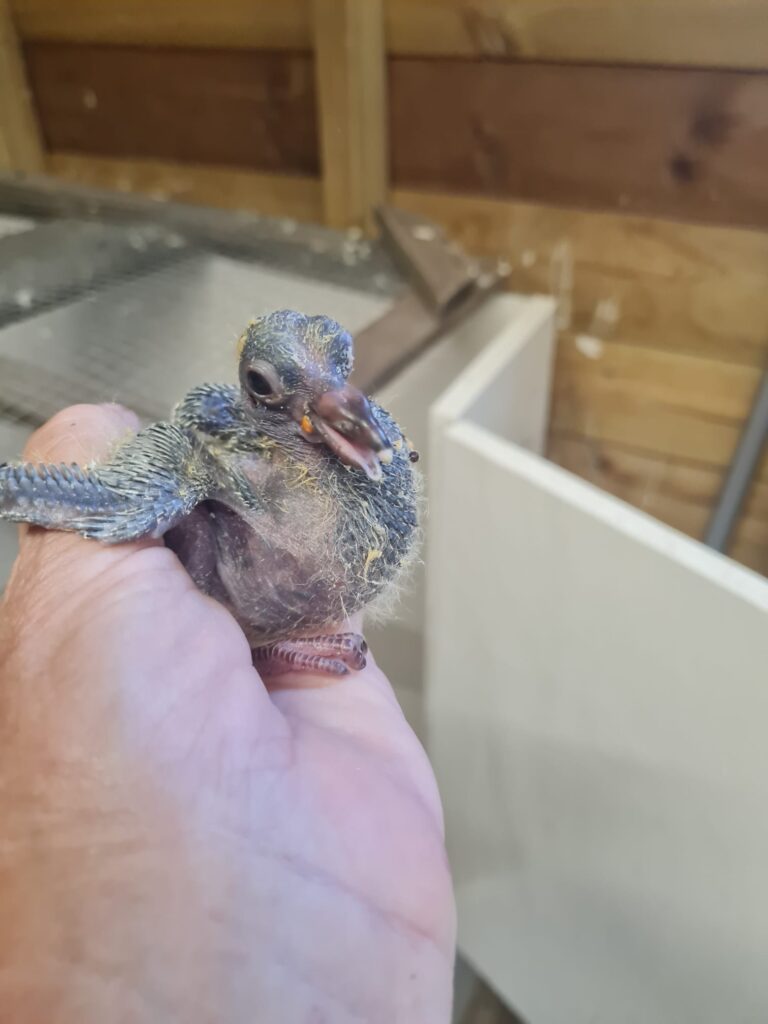
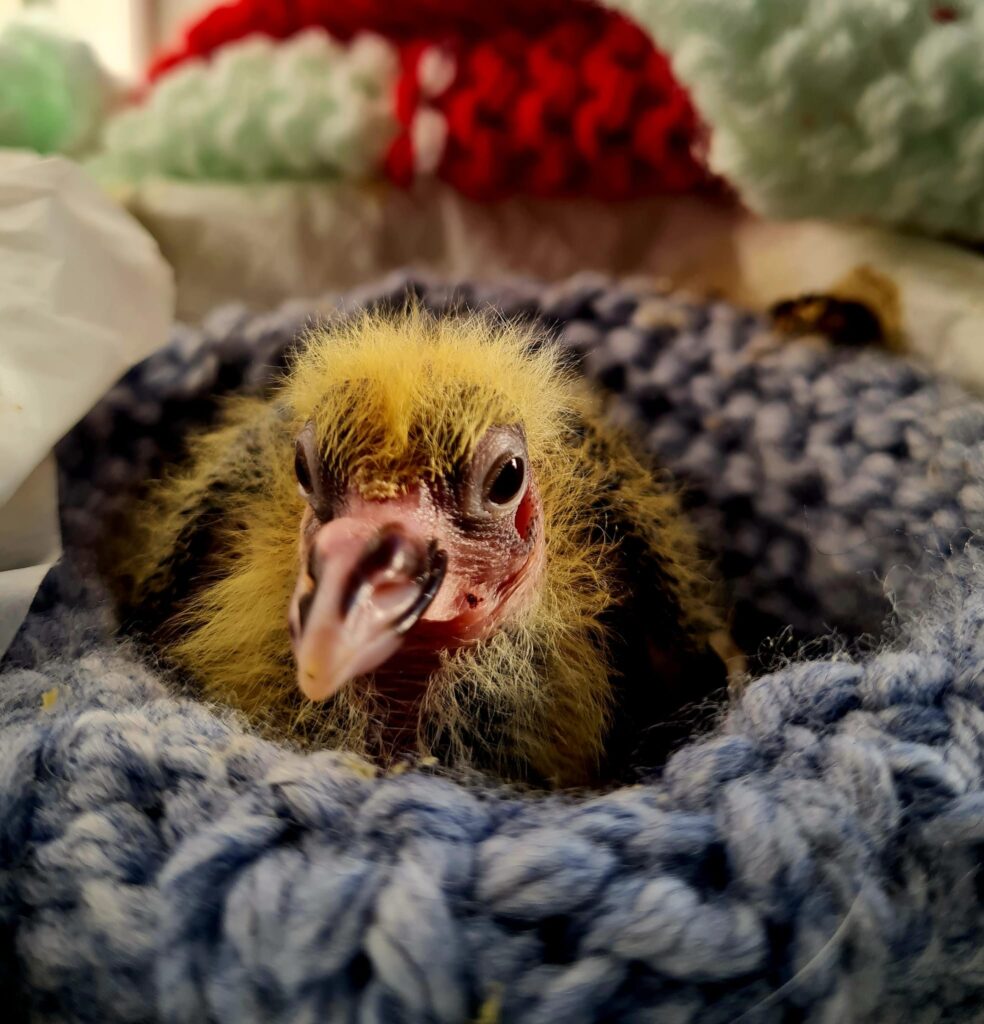

Swifts/House Martins
If you find a grounded Swift or House Martin it may be exhausted. Place the bird in a dark/warm box and see if it will fly off after an hour or so, if it will not, then please contact us. If you find a young Swift or House Martin, then is is possible the nest has collapsed, if this is the case, place it in a pot or box and place up high, monitor it and determine if the parents are returning. If the parents do not return please contact us for help. When dealing with Swifts or House Martins always wear gloves, and keep handling to a minimum, their feathers are damaged very easily.
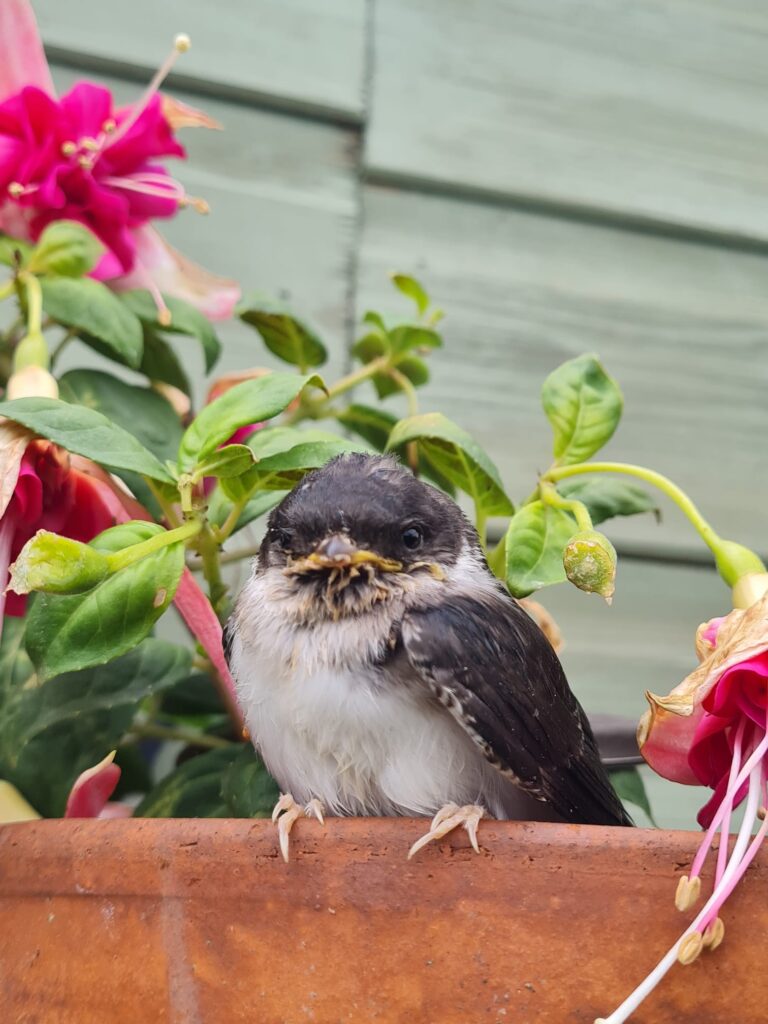
Injured Birds
If you discover a bird of any age, which shows one of the below signs of injury regardless of if it has feathers or not, it needs immediate attention, in all instances please take the bird to a vet if you possibly can, details can be found on our ‘Useful Contacts Page’.
- Visible wound, swelling or blood loss.
- Caught by a cat or dog, will need treatment for potential infection.
- Doesn’t fly or move away when approached.
- Is ‘fluffed up’ and can’t hold it’s head up.
- Beak is open, with fast breathing.
- Visible swelling or growths around the eyes.
For a Bird that shows any of the above signs of visible injury, all we can do it take it to a vet, which is not always easy due to the time and man-power required, which can be much better spent caring for the animals already in our care. All of the vets listed on our ‘Useful Contacts’ page keep in touch with us regularly, and will never euthanise a healthy animal, they are aware of our capabilities and will always discharge to us for rehabilitation where possible.
Remember never give food or water to an animal that is visibly injured, they often hides signs of pain and weakness and feeding takes a lot of their energy which if injured is their most valuable asset, if they try to hard to act normal this could kill them.
Corvids
Crows, Jackdaws and Magpies please ring for advise. They need a different diet to other birds.
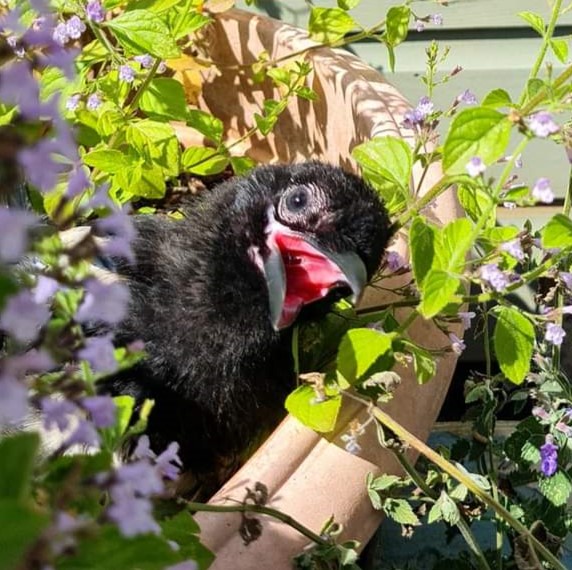
Avian Influenza (Bird Flu)
Due to Avian Flu especially in birds we ask people not to handle sick birds. Please call us for advise first. If you find a dead bird please report to Defra.
General Notes
All young birds imprint on humans quickly and rely on you for food. The most difficult stage is mimicking when they fledge. The parents get them to leave the nest but support them in the big outside and teach them to find food. If you do not have the experience or an aviary to do this stage please pass the chick to a rescue straight away. By far are most difficult animals to rehabilitate are the ones that have been made a pet. It takes months to wild them up and in some case they never cope on their own.
